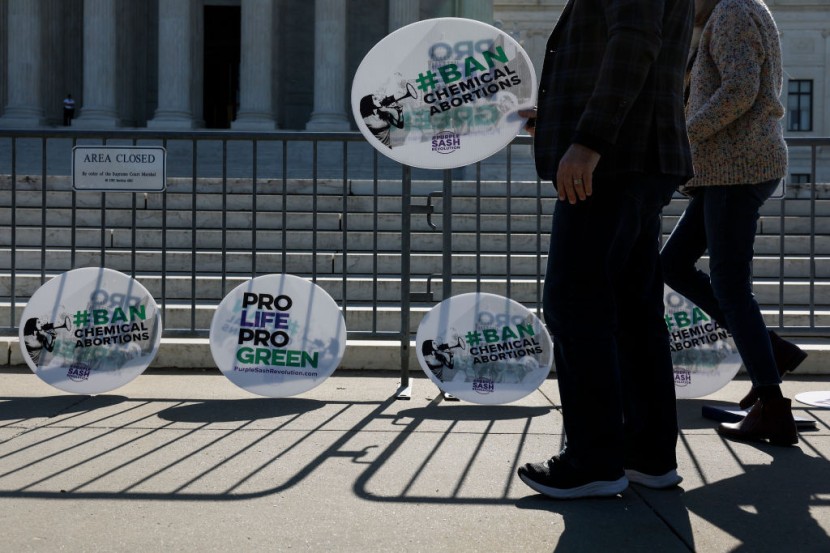
- Two hospitals refused to provide an emergency abortion
- Abortions are outlawed in Missouri, but there are exceptions
- The Biden administration reminded hospitals that they are required to provide abortions under federal law
According to a letter from US Health and Human Services Secretary Xavier Becerra, the Centers for Medicare and Medicaid Services are investigating two hospitals that "did not provide necessary stabilizing care to an individual experiencing an emergency medical condition, in violation of the Emergency Medical Treatment and Labor Act (EMTALA)."
EMTALA requires healthcare professionals to offer treatment, including abortion care, that the provider reasonably determines is necessary to stabilize the patient's emergency medical condition.
Feds: 2 Hospitals Break the Law by Denying Abortion
The National Women's Law Center stated that it lodged the initial EMTALA complaint on Mylissa Farmer's behalf and identified the hospitals as Freeman Hospital West in Joplin, Missouri, and the University of Kansas Health System in Kansas City, Kansas.
According to CNN, Becerra wrote that the patient was nearly 18 weeks pregnant when she experienced a premature rupture of membranes, but she was told her pregnancy was not viable.
On Monday, Becerra added, "Luckily, this patient survived. However, she should have avoided the harrowing ordeal she endured in the first place. We want her and all patients like her to know that we will investigate and enforce the law to the full extent of our legal authority."
Missouri prohibits abortion, with limited exceptions, such as the need to save the mother's life. The state legislature mandates counseling and a 72-hour waiting period. In Kansas, abortion is generally prohibited at or after 22 weeks of pregnancy, with counseling and a 24-hour waiting period required.
The findings warn hospitals nationwide as they struggle to reconcile dozens of new state laws that ban or severely restrict abortion with a federal mandate requiring physicians to provide abortions when a woman's health is at risk.
Per ABC News, since the Supreme Court invalidated the constitutional right to an abortion a year ago, competing regulations have been implemented. However, federal law, which requires physicians to treat patients in emergencies, supersedes state laws, according to the nation's top health official.
The Centers for Medicare & Medicaid Services (CMS) has not announced any sanctions or other penalties against the two hospitals in its investigation. Still, it has warned them that they violated the law and requested that they remedy the issues that led to Farmer being turned away.
Before closing the investigation, federal Medicare investigators will conduct follow-ups with the institutions.
US Abortion Law
Mary Ziegler, a law professor at the University of California, believes this will not persuade hospitals and physicians to provide abortions in states where they face imprisonment or hefty penalties for terminating pregnancies.
Even when state law prohibits abortions, the administration of President Joe Biden has urged hospitals not to reject patients in such circumstances.
A few weeks after the Supreme Court's ruling, the Democratic administration reminded hospitals that federal law requires them to provide abortions when a pregnant woman is in imminent danger from a life-threatening medical condition.
The federal government can investigate hospitals that receive Medicare and Medicaid funds - the vast majority of hospitals in the United States - for legal violations.
Doctors across the country have reported uncertainty regarding how to provide care to pregnant women, particularly in the nearly 20 states where new laws have prohibited or restricted the care. In certain jurisdictions, doctors who perform abortions face criminal and civil penalties, as per NBC News.
Related Article : Texas, Chicago Clash Over Migrant Crisis








